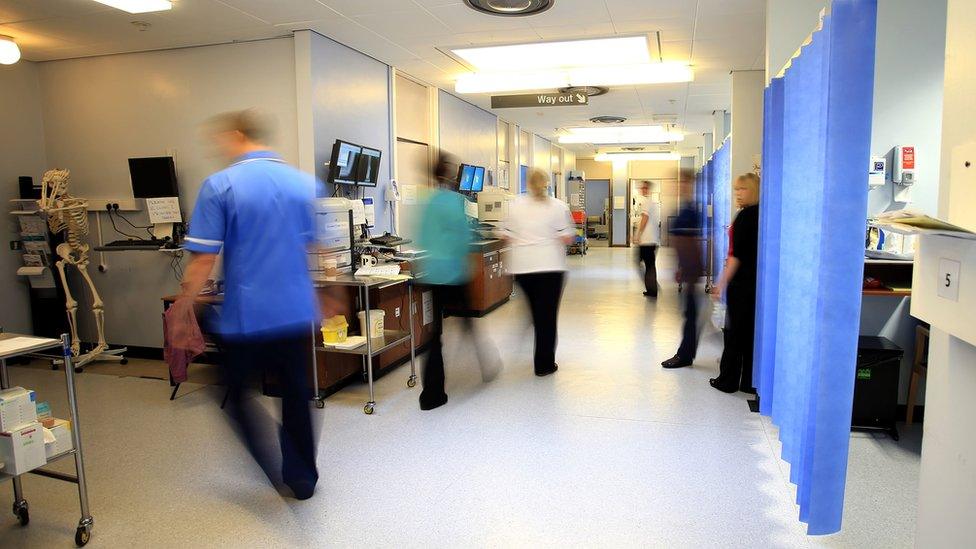Patients facing two-day waits in A&E
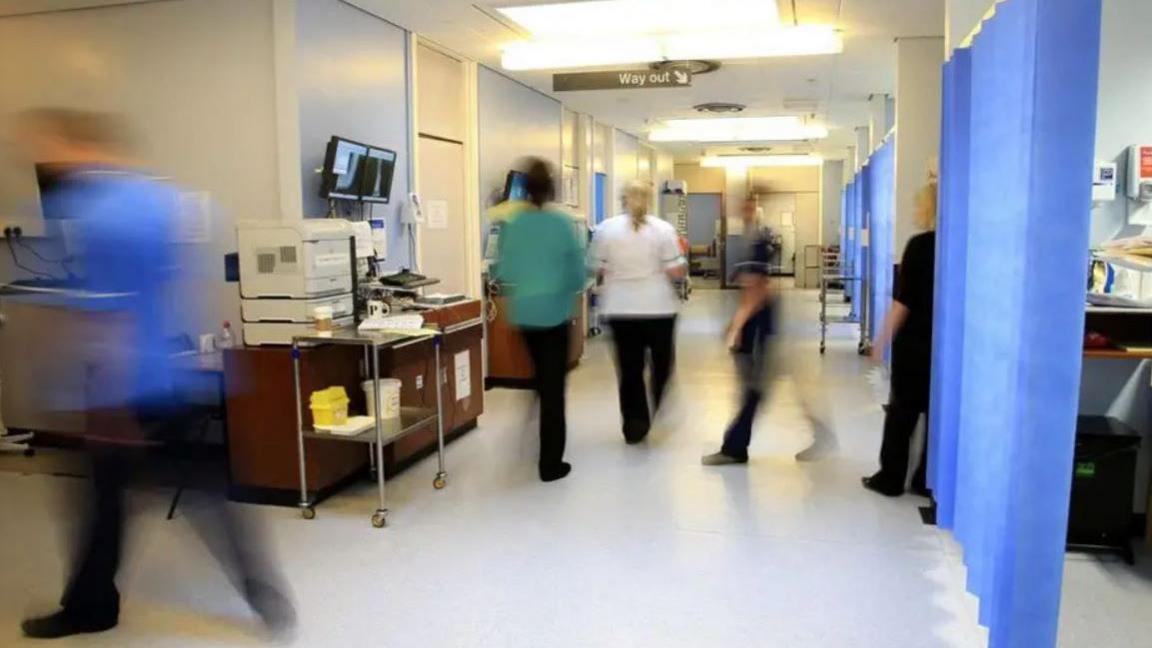
The hospital said it was struggling with flu levels and urged people to only attend in a genuine medical emergency
- Published
Patients at Royal Liverpool University Hospital's accident and emergency unit have been facing waits of up to 50 hours.
Liverpool University Hospitals NHS Foundation Trust has declared a "critical incident" due to "exceptionally high demand" on services and urged people to only go to A&E in a genuine medical emergency.
The hospital said it was "extremely busy" amid a rising number of patients with flu and other respiratory conditions, prompting Liverpool Riverside Labour MP Kim Johnson to call on the government to immediately come up with a plan to increase NHS funding.
Critical incidents have also been declared in the East Midlands, Birmingham, Devon, Cornwall, Northamptonshire and Hampshire.
The East Midlands Ambulance Service - which covers Nottinghamshire, Derbyshire, Leicestershire, Rutland, Northamptonshire and Lincolnshire - has declared the first critical incident in its history due to a combination of "significant patient demand, pressure within hospitals and flooding"
Health bosses have asked people suffering from flu, Covid, norovirus or respiratory syncytial virus (RSV) to stay away from the Royal Cornwall Hospital's A&E department in Truro
An influx of patients at Derriford Hospital in Plymouth has also prompted a critical incident
Hampshire Hospitals said, due to "sustained pressures" at its Basingstoke and Winchester hospitals, it has also declared a critical incident
University Hospitals Birmingham is another trust to have declared a critical incident with an "exceptional number" of patients with flu requiring hospital admission
NHS services in Northamptonshire have also escalated their status to critical, due to what they say is ongoing demand, particularly at Northampton and Kettering general hospitals
A Liverpool University Hospitals NHS Foundation Trust spokesman said emergency measures had been put in place which would allow managers to call for extra help and to make changes to ensure patient safety.
He said the critical incident had been declared because of "exceptionally high demands on our emergency department, especially with flu and respiratory illnesses, and the number of patients".
The decision had been taken "to support the safe care and treatment of our patients, which is our absolute priority", he said.
The trust said managers were working with partners to ensure that those who are medically fit can leave hospital safely and at the earliest opportunity.
'Rising flu cases'
The trust spokesman said staff were "working incredibly hard" to treat people as quickly as possible but warned some patients will "experience longer waits while we treat our sickest patients".
Non-emergency patients are urged to instead use other services, such as a GP, a local pharmacy or walk-in centre.
"We have seen an increasing number of people with flu and respiratory illnesses in our emergency departments in recent weeks," the spokesman said.
For people who do go to the emergency department, they asked patients and visitors to follow additional infection control measures to help curb the spread of flu and norovirus.
"This includes practising good hand hygiene, only visiting the areas they need to in our hospitals and wearing masks in clinical areas if asked to do so," the spokesman said.
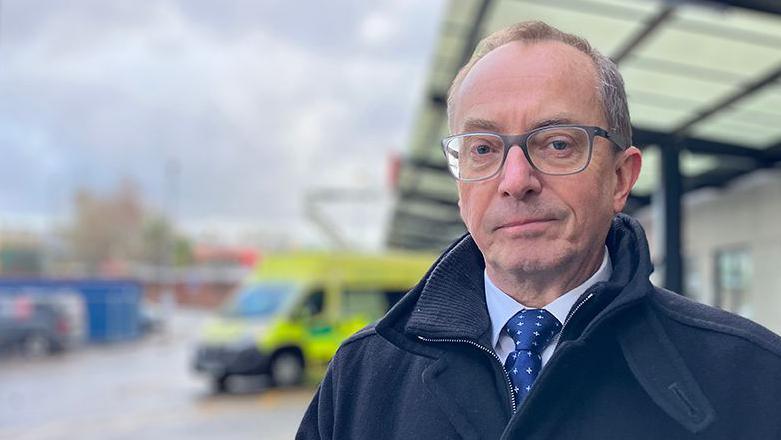
Dr Jim Gardner said the Royal Liverpool University Hospital had been impacted by staff sickness, while delayed patient discharges remained "an issue"
Dr Jim Gardner, chief medical director, said some patients were on trolleys.
He said the it would take "a few days to clear" the backlog.
Dr Gardner explained that a triaging system meant patients in the greatest medical need were still be seen first.
He added that patients should continue to attend appointments unless they had been informed otherwise by the hospital.
'Life-threatening delays'
Johnson said the situation illustrated "the critical challenges facing our NHS, particularly the ongoing staffing and capacity crises".
She said: "Labour must immediately implement a comprehensive plan to increase NHS funding, recruit and retain healthcare professionals, and invest in social care to facilitate timely patient discharges across our hospitals.
"Our goal must be to ensure that hospitals like Royal Liverpool are equipped to provide the high-quality care that patients deserve, without the life-threatening delays they are currently facing."
Johnson pointed out that Liverpool Riverside was "the most deprived constituency in England" and that poverty remained a significant driver of health inequalities.
"Tackling poverty at its root is essential to creating better health opportunities, reducing the strain on A&E services, and improving lives across Liverpool," she said.
She thanked NHS staff for their dedication "under immense pressure at these difficult times", adding "Labour must support them by rebuilding a sustainable and resilient health service for all, from cradle to grave".
Elsewhere in Merseyside, Arrowe Park in Wirral declared a critical incident on Saturday but that was stood down on Monday.
And Whiston Hospital in Prescot said it had declared Opel 4 - the highest level on the system the NHS uses to grade demand, indicating that a hospital is "unable to deliver comprehensive care" and patient safety is at risk.
'Surpassing last year'
Health and Social Care Secretary of State Wes Streeting said in the House of Commons earlier: "The NHS is experiencing a period of significant winter challenge.
"The number of beds occupied by people with flu has been much higher than the number last year, and is continuing to rise.
"An average of just over 4,200 beds were occupied by flu patients at the end of December, surpassing the peak of about 2,500 reported last year."
He added: "We monitor the situation closely, working hand in hand with NHS England and care leaders, and I continue to chair weekly meetings with senior leaders in social care, NHS England and the UK Health Security Agency."
Get in touch
Have you been affected by the issues raised in this story?
Listen to the best of BBC Radio Merseyside on Sounds and follow BBC Merseyside on Facebook, external, X, external, and Instagram, external. You can also send story ideas to northwest.newsonline@bbc.co.uk, external and via Whatsapp to 0808 100 2230.
- Published20 November 2024
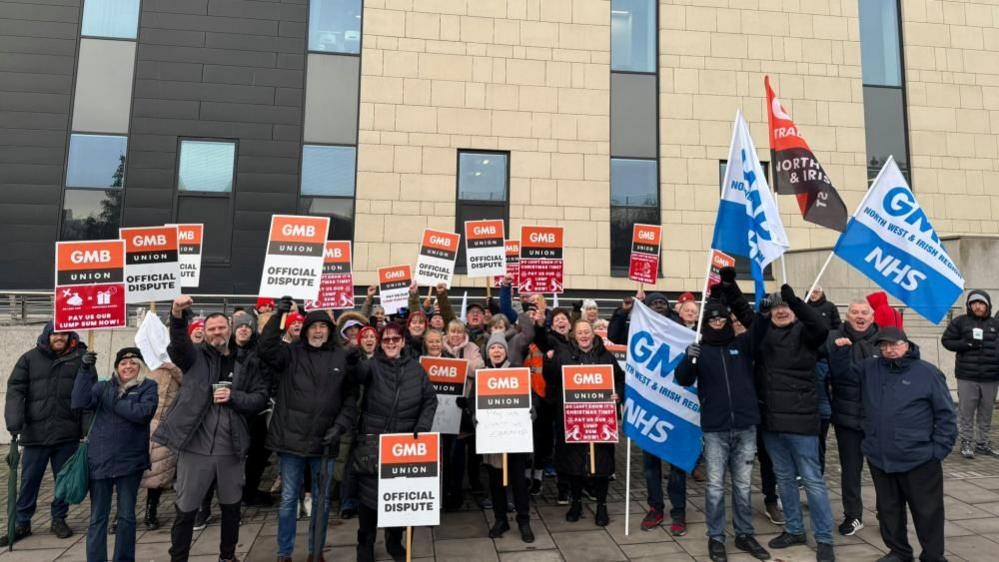
- Published6 September 2024
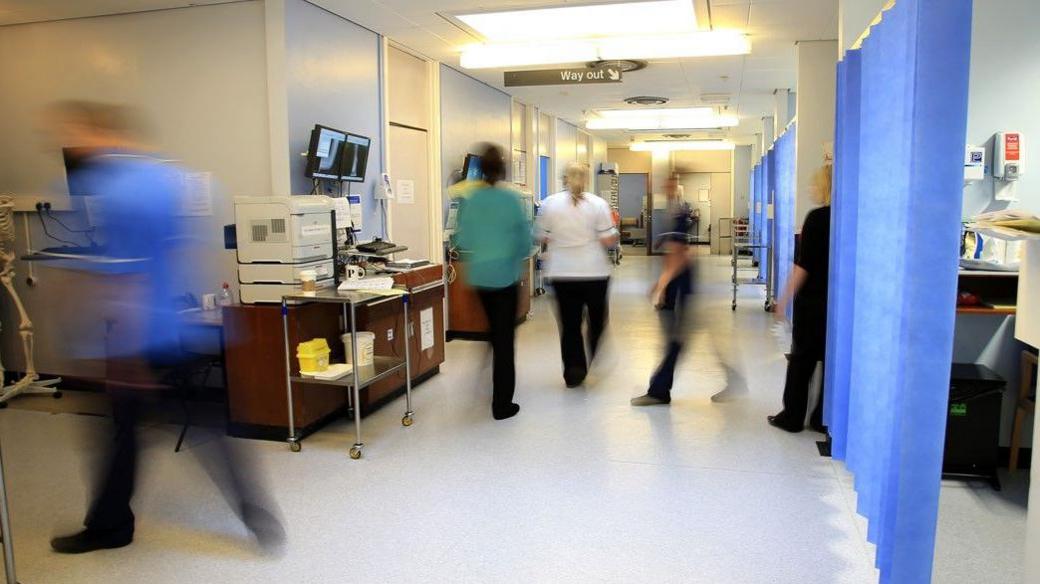
- Published10 December 2023
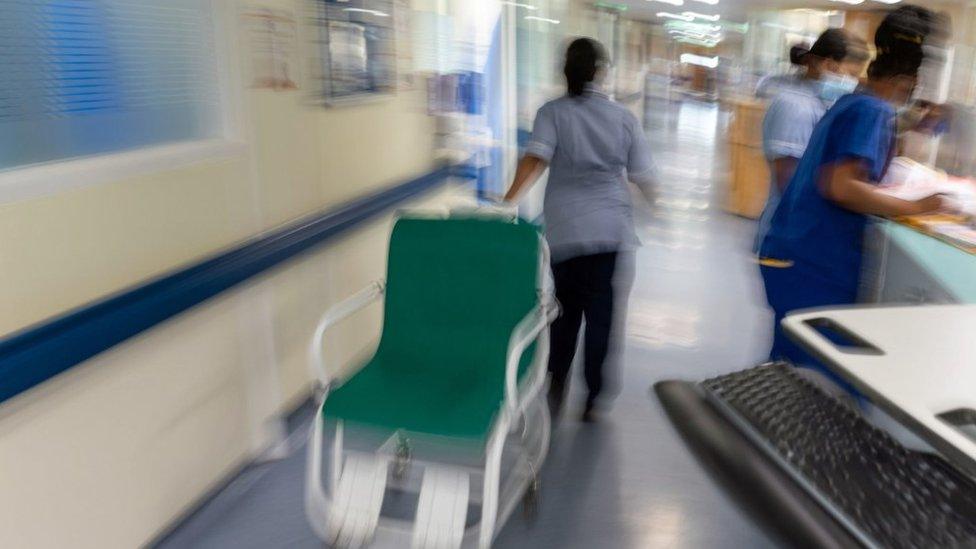
- Published6 January 2023
